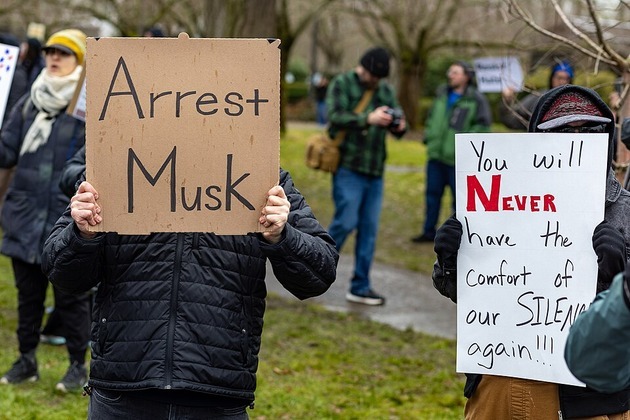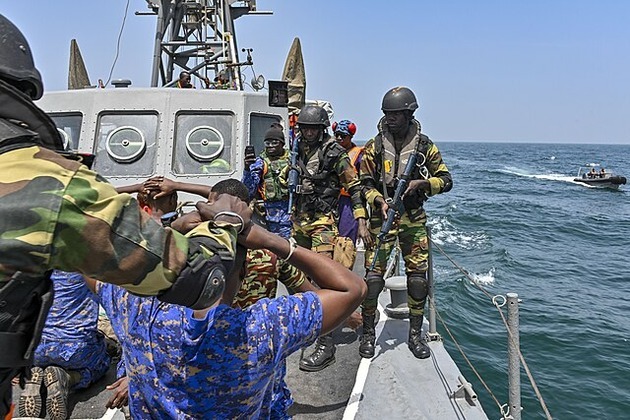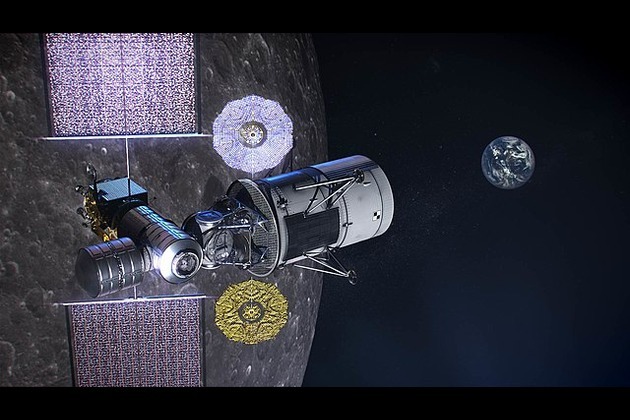What will be the effect of Australia's sanctions on Israeli ministers? Here's what my research shows
The Conversation
12 Jun 2025, 02:59 GMT+10

Australia, Canada, New Zealand, Norway and the UK this week announced sanctions against two members of the Israeli cabinet: National Security Minister Itamar Ben-Gvir and Finance Minister Bezalel Smotrich.
This is a momentous development. The governments concerned make it clear that they consider Ben-Gvir and Smotrich to be involved in "serious abuses of Palestinian human rights", including "a serious abuse of the right of individuals not to be subjected to cruel, inhuman or degrading treatment or punishment".
This is an allegation rarely levelled against sitting ministers of a democratic state, predictably causing the Israeli government to protest.
While diplomatic consequences play out, what are sanctions anyway, and what do they mean for Ben-Gvir and Smotrich?
"Sanctions" is a broad umbrella term. Whole countries can be sanctioned, but so can be individuals.
Sanctions on individuals are imposed by means of a government placing them on its national sanctions list, such as Australia's Consolidated List (which now features both Ben-Gvir and Smotrich).
Three direct consequences flow from such a sanctions designation.
First, all of the sanctioned person's assets in the relevant country are frozen. This means that, while in principle they remain the sanctioned person's property, they cannot be used or sold. This places those assets in limbo, potentially for a very long time.
Second, no person within the sanctioning state's jurisdiction - that is, no one in its territory, nor any of its citizens or residents - is allowed to make money or other resources available for the benefit of the sanctioned person.
So, it is an offence for anyone in Australia to send funds to anyone on the Consolidated List. Interestingly, there is no prohibition on receiving money from sanctioned persons.
Third, sanctioned persons are subject to an entry ban.
So, if a foreigner is sanctioned by the Australian government, their permission to enter Australia will be denied or revoked.
Legal challenges are possible. For example, in 2010, the daughter of a Burmese general studying at Western Sydney University unsuccessfully sued the foreign minister for sanctioning her and cancelling her visa based on her family ties.
The sanctions against Ben-Gvir and Smotrich are what's known as "Magnitsky" sanctions.
This refers not to the substance of sanctions, but rather the reasons for their adoption, namely alleged corruption or human rights abuse, rather than other forms of wrongdoing. The imposition of sanctions on those grounds was pioneered by two US statutes named after Sergei Magnitsky, a Russian whistleblower killed in a Moscow prison.
In the case of the Israeli ministers, human rights abuses are alleged.
But what is the practical effect of these kinds of sanctions designations?
After all, many people sanctioned by Australia will not have any property in the country, will never receive any money from Australia, and may never contemplate visiting.
One might be tempted to conclude that, in those circumstances, sanctions are ineffectual. But the reality is more complicated.
In 2023, together with the London-based International Lawyers Project, I conducted the first study of the effect (or impact) of "Magnitsky" sanctions, focussing on the first 20 individuals sanctioned for alleged corruption under the US Global Magnitsky Act 2016.
We found there were no less than ten types of effects that sanctions might have.
And in at least two-thirds of the case studies we looked at, sanctions had an impact.
This may be skewed by the high-profile nature of those first 20 corruption-related designations under the 2016 act, which included former heads of states and major businesspeople. Still, sanctions can mean more than their direct impact.
Of these categories of effects, private sector action is especially important. This involves businesses globally dropping the targeted person as a customer even when not legally required to do so.
For example, non-Australian banks are not bound by Australian sanctions. But, once Australian sanctions are in place, they feed into major private-sector sanctions databases that are used by banks worldwide.
Global banks may well decide that - once someone is accused of human rights abuse, corruption or other misconduct by a credible government - keeping the targeted person on the books is no longer worthwhile, not least reputationally.
For US sanctions, this effect is turbocharged by the fact virtually all banks need to route US dollar transactions via the US financial system, and they cannot do so on behalf of a sanctioned person. Banks soon drop such customers.
In a famous example, Carrie Lam, the chief executive of Hong Kong, complained of having to keep piles of cash at home due to US sanctions precluding any Hong Kong bank from taking her on as a customer. (To be clear, the US has not imposed any sanctions on Ben-Gvir and Smotrich, and has opposed their designation by Australia and others.)
Australian sanctions would not have such a profound impact, but they are a reputational irritant at the very least.
This may account for the (failed) judicial challenges brought against Australian sanctions by two Russian oligarchs, Alexander Abramov and Oleg Deripaska, as well as another billionaire's more successful petitioning of Australia's foreign minister to lift the sanctions against him.
In general, contesting sanctions in court is exceedingly difficult. Few claimants succeed, in Australia or elsewhere.
It is far more likely the sanctions against Ben-Gvir and Smotrich will result in diplomatic discussions and lobbying behind the scenes.
 Share
Share
 Tweet
Tweet
 Share
Share
 Flip
Flip
 Email
Email
Watch latest videos
Subscribe and Follow
Get a daily dose of Brisbane Star news through our daily email, its complimentary and keeps you fully up to date with world and business news as well.
News RELEASES
Publish news of your business, community or sports group, personnel appointments, major event and more by submitting a news release to Brisbane Star.
More InformationAustralia
SectionFresh IVF error raises alarm over clinic safety and oversight
MELBOURNE, Australia: A second embryo mix-up in just two months has pushed one of Australia's largest IVF providers back into the spotlight,...
Australian PM rejects US pressure to ease biosecurity rules
SYDNEY, Australia: Australia will not ease its strict biosecurity rules during trade talks with the United States, Prime Minister Anthony...
Summer travel slows as Americans hunt for last-minute bargains
WASHINGTON, D.C. Forget bucket lists; this summer, it's all about budget lists. Amid economic uncertainty and a weaker dollar, Americans...
WTC final: Starc overtakes Shami, continues strong show in ICC tournament knockouts
London [UK], June 12 (ANI): Australian pacer Mitchell Starc overtook Indian veteran Mohammed Shami, becoming the bowler with the most...
Australia, Canada, New Zealand, Norway, UK announce sanctions against Israel ministers
Canberra [Australia], June 12 (ANI): The Foreign Ministers of Australia, Canada, New Zealand, Norway and the United Kingdom collectively...
What will be the effect of Australia's sanctions on Israeli ministers? Here's what my research shows
Australia, Canada, New Zealand, Norway and the UK this week announced sanctions against two members of the Israeli cabinet: National...
International
SectionDeep divides mark Poland’s runoff election
WARSAW, Poland: Poland held a second round of voting in its presidential election on Sunday, but exit polls show the race is too close...
Greta Thunberg, others stopped while attempting to break Gaza blockade
WEST JERUSALEM, Israel: Israeli forces stopped a boat heading to Gaza and detained Greta Thunberg and other activists on board early...
Fresh IVF error raises alarm over clinic safety and oversight
MELBOURNE, Australia: A second embryo mix-up in just two months has pushed one of Australia's largest IVF providers back into the spotlight,...
Trump and Musk feud goes viral on X
WASHINGTON, D.C. A public fight between U.S. President Donald Trump and billionaire Elon Musk has taken over social media, especially...
Human traffickers exploit new deadly route from Africa to Europe
DERA BAJWA, Pakistan: Amir Ali, a 21-year-old man from Pakistan, dreamed of going to Europe for a better life. He was promised a visa...
ispace lander crashes on moon; Japan faces new lunar setback
TOKYO, Japan: Japan's hopes for a foothold in commercial lunar exploration suffered a second blow this week after Tokyo-based startup...











